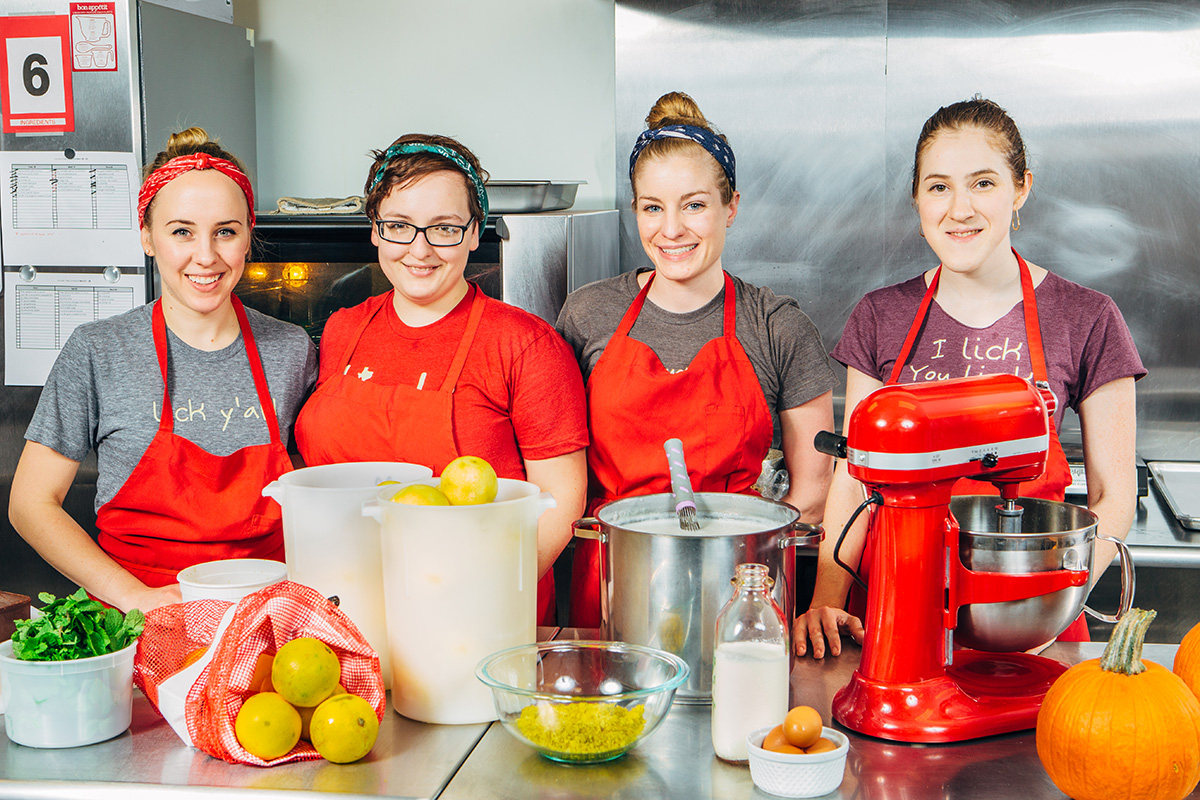Locally Crafted
Working with local artisans to support socially and environmentally responsible practices through community entrepreneurship
For many family farmers, ranchers, and artisans, the act of producing food is about community, a way to share their craft and expertise with people and connect with something larger than themselves.
Since the 1999 launch of our Farm to Fork program, Bon Appétit has worked to source at least 20 percent of our ingredients from small local farms, ranches, and food businesses, bringing food grown within 150 miles of our kitchens onto the menu. Conceived as a way to strengthen the communities in which we live, work, and play and to showcase regional flavors, Farm to Fork has resulted in hundreds of successful partnerships across the nation.
But sourcing locally grown food isn’t the only way to build a more sustainable food system. Over the years we connected with vibrant local businesses near our cafés that may not actually grow food like our Farm to Fork partners do, but they craft delicious products in traditional ways, and make a concentrated effort to sustain their community through their business practices. Businesses like a group of Latino women making handmade tortillas the same way their great-grandmothers did, a small-batch chocolatier sourcing Fair Trade cacao beans, or a bakery that makes a point of hiring and training formerly incarcerated gang members.

Lick Honest Ice Cream in Austin, TX, uses milk from a local dairy as well as seasonal, local ingredients in its ice cream
In addition, our Locally Crafted vendors must meet at least two of the following criteria:
- Locally Sourced: At least 50% of the product’s ingredients are from small, owner-operated farms within 150 miles of the Bon Appétit kitchen.
- Responsibly sourced: At least 50% of the product’s ingredients are responsibly sourced as verified by an approved third-party organization, such as Certified Organic or Fair Trade.
- Humanely sourced: The eggs, dairy, and protein in the product meet all Bon Appétit’s own sustainability standards.
- Traditional/artisan: The product is a staple of a specific cuisine, made in the traditional manner with a minimum of additives and preservatives, or in small batches by hand using traditional methods.
- Justice through ownership: The business is majority minority or woman-owned and -controlled.
- Justice through training: As a founding principle, the business seeks to provide job opportunities to a disadvantaged population.
We are proud to nourish the people in our local Bon Appétit communities who — like us — are trying to change the food system through their businesses.